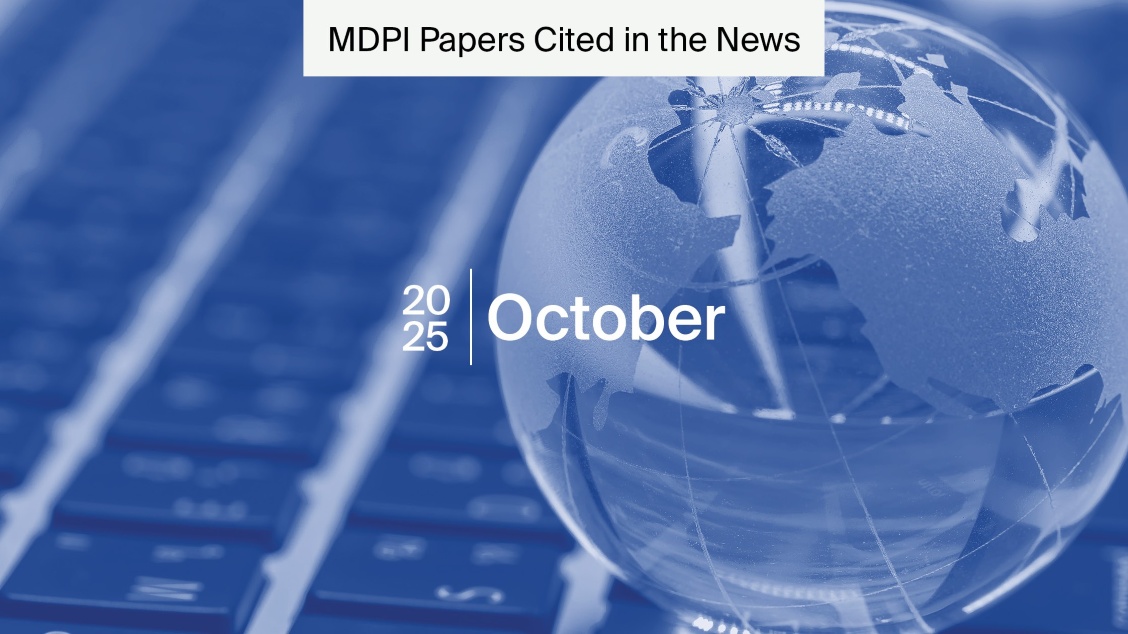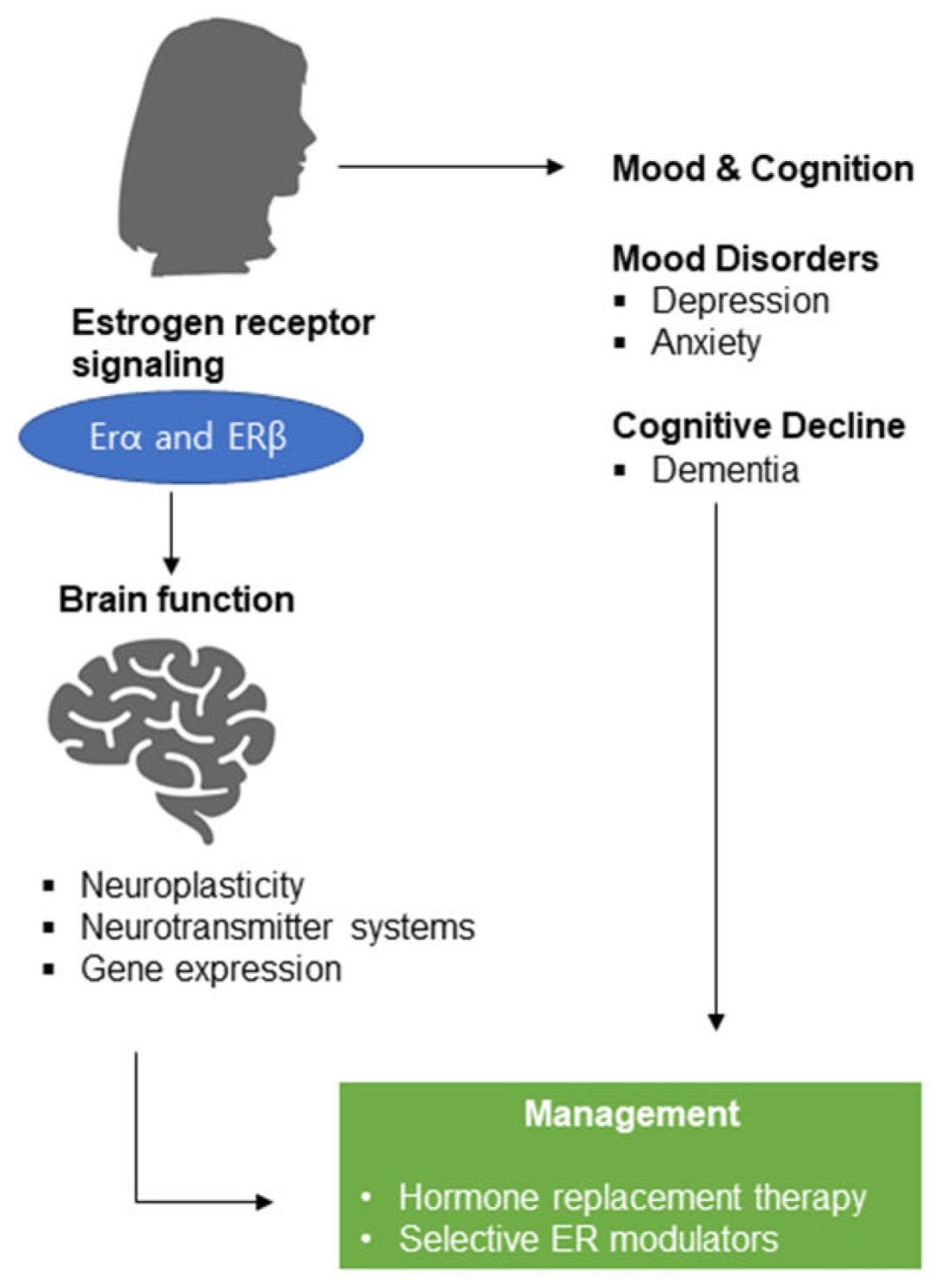
MDPI Articles Cited in the News: October 2025
This month, we explore exciting research across a range of MDPI Open Access journals mentioned by prominent news outlets such as National Geographic and BBC Future. Research includes a study showing the scarcity of scientific evidence amongst nutrition-related content across Instagram in the US; how ghosting can create long-lasting impacts on an individual’s mental well-being; the link between sunshine in the winter and the risk of depression; and lastly, an up-to-date review on how estrogen signalling is important for cognitive and mental health in menopausal women.
Nutrition-Related Content on Instagram in the United States of America: Analytical Cross-Sectional Study
Published in Foods
Mentioned by National Geographic
Scientific misinformation is rife across social media, particularly when it concerns food and nutrition. An article, published in the Open Access journal Foods and cited by National Geographic, presents a cross-sectional study showing how scientific evidence was significantly lacking amongst nutrition-related content.

The study analysed randomly selected nutrition content consumed by 898 US participants. This included content made by nutrition influencers who would offer nutrition advice, tips, and recipes. The survey also included questions asking the participants’ opinions about the influencers, their impact on their own body image, and whether they looked up an influencers’ accreditation.
Scientific evidence was scarce and commercial interest in the network was evident.
The study concluded that most content made by nutrition influencers mainly focused on commercial interest and promotions of products and supplements, with only 14.3% of the content holding any scientific evidence or backing.
They found that the content did have a more positive impact on body image; however, the study states that ‘scientific evidence was scarce’ in the content. This emphasises the need to exercise caution when consuming nutrition-related content online which may not be scientifically backed.
Ghosting: Abandonment in the Digital Era
Published in Encyclopedia
Mentioned by Huffington Post

Ghosting is not a new behavioural phenomenon, but its prevalence has increased drastically due to the predominant rise in digital communications like social media and dating apps.
Ghosting refers to the complete abandonment of a relationship, where an individual cuts off all forms of communications with another with no explanation. This leaves the receiver feeling confused, anxious, or upset, and often impacts their mental health and emotional wellbeing. But why do people do it?
An article published in the Open Access journal Encyclopedia explores the current knowledge on ghosting, discussing the potential reasons behind why people are likely to ghost and the psychology behind it.
The authors used terms such as ‘ghosting’ and ‘online dating’ to carry out a comprehensive review on literature published throughout 2023 to gain insights into this behaviour.
We find associations between ghosting tendencies and dark personality traits such as narcissism. This suggests that dating apps could potentially screen for these traits or incorporate notifications/tips that discourage ghosting by appealing to users’ empathy.
Unsurprisingly, they found that the prevalence of ghosting has increased. They also saw how specific personality traits are associated with the increased likelihood of someone ghosting another person. This includes traits such as narcissism, psychopathy, and Machiavellianism, whereby there is a consistent lack of empathy towards others. Hence, people with these traits usually do not have any concern on the emotional impact they have on the person they have ghosted.
The analysed studies also showed that fear of confrontation, desire for control and emotional immaturity may be associated with the intent to ghost.
Importantly, the study also highlights the psychological difficulties that people who have been ghosted face. This includes a pronounced fear of abandonment, impacting the ability to form healthy bonds and future relationships. The conclusions emphasise the need for better psychotherapeutic techniques and guides to help those who have struggled with being ghosted, informing self-care practices, resilience and healthy communication.
Interestingly, the authors suggest an avenue for social media apps to incorporate frameworks to filter for specific personality traits to work on discouraging ghosting behvaviour.
Sunshine Duration, Genetic Predisposition, and Incident Depression: Findings from a Prospective Cohort
Published in Green Health
Mentioned by Forbes
With daylight saving time officially here, sunlight is becoming scarcer as we hurtle closer towards winter. The lack of sunlight can be harmful to health, with many experiencing psychological impacts such as seasonal affective disorder. An article published in Green Health explores how sunshine exposure affects the incidence of depression in 336,.805 UK participants and the factors that mediated this relationship.
Results showed that sun exposure offered a protective role against depressive disorders, with there being a significant reduction in depression risk in the participants exposed to more sunshine.
Furthermore, the study showed that Vitamin D metabolism, sleep patterns, and systemic inflammation played a crucial role in this relationship.

The authors emphasise the value of adopting a regular sleep pattern, an anti-inflammatory lifestyle, and Vitamin D supplementation. The study also showed that more sun exposure was the most beneficial for the elderly, those who were less physically active and those who spent less time outdoors.
This study highlights the importance of sun exposure and healthy lifestyle choices in reducing the risk of depression, particularly in the winter months where sunlight is scarce.
Beyond Hot Flashes: The Role of Estrogen Receptors in Menopausal Mental Health and Cognitive Decline
Published in Brain Sciences
Mentioned by BBC Future
Menopause is a highly misunderstood and under-researched aspect of women’s health. Moreover, the cognitive symptoms associated with the onset and duration of menopause is even less understood and characterised, compared to the more-well known physical symptoms such as hot flashes and osteoporosis.
Future research is crucial to further understand the precise mechanisms by which estrogen impacts brain function and to develop safer, more effective therapies.
Menopause is a phase experienced by every biological woman, characterised by the cessation of menstruation and drop in hormones like estrogen.

An article published in Brain Sciences explores these less understood cognitive symptoms associated with the onset of menopause due to a sustained estrogen drop. It highlights the vital impact that estrogen has on brain health, exploring the critical molecular mechanisms of estrogen and estrogen receptor (ER) signalling and their role in the development of mood and mental health disorders in those experiencing menopause.
The study is important in presenting the current knowledge on the importance of estrogen-receptor signalling regulation. It also addresses how therapies such as hormone replacement therapy and selective ER modulators can be beneficial for the menopausal brain. However, while these therapies have shown to help women, there is also a range of risks, side-effects and long-term effects which require more research to understand.
Understanding menopause and its symptoms can boost the further development of effective therapeutics, helping women alleviate the array of difficult symptoms that menopause may bring.
MDPI publishes articles across all fields of science. To read more of this research, access the full list of MDPI journals, where all articles are free to read immediately.










